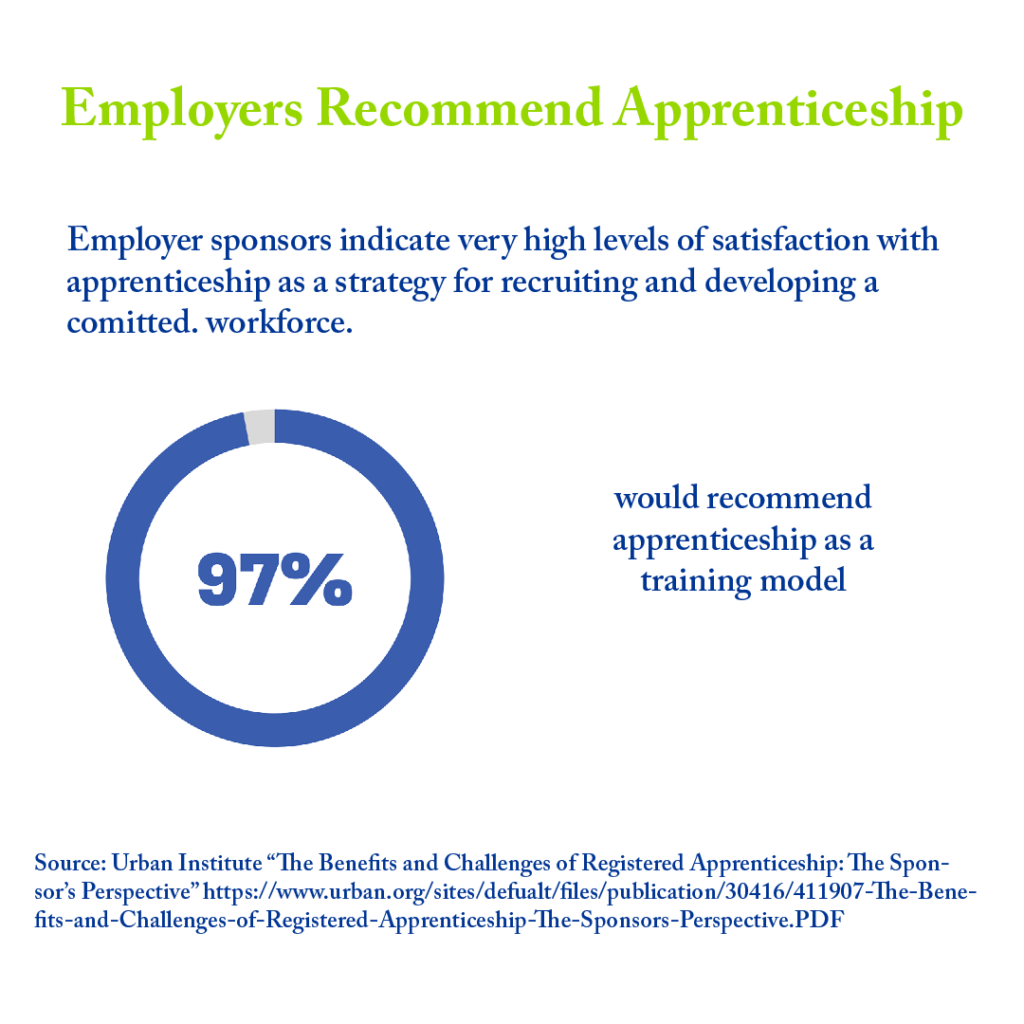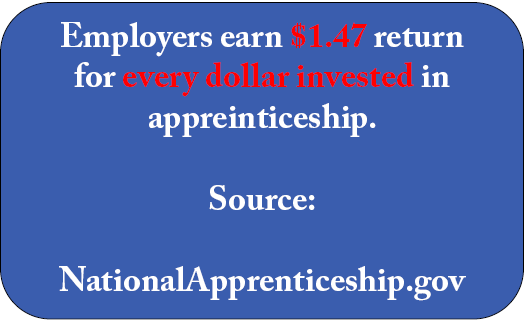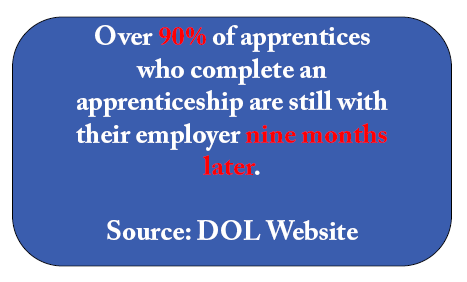Apprenticeship programs help people develop skills for a new career path, by incorporating on-the-job training (OJT) while the individual also receives education.
To support the growth of CHWs in the workforce, The HAP Foundation has registered a 1-year CHW Apprenticeship Program with the Department of Labor (DOL). Our program is designed to provide someone with the skills and instruction to become a CHW and support clients or patients who are seriously ill.
The program requires at least 144 hours of technical instruction and 2,000 hours of on-the-job training (OJT), which is about 1 year of experience. Previous experience and education may be considered when determining the amount of time needed to complete the program.
Who is eligible to participate?
- 18 years +
- Must have a high school diploma or GED
- Currently, the program is only available in English
What will the program provide?
The HAP Apprenticeship Program will provide:
- A minimum of 144 hours of education, customized to meet the needs of various organizations and their employees.
- Administration of the program, including all reporting and tracking to the DOL.
- Support to employees in tracking OJT.
We are committed to working with leaders and experts to ensure the education we deliver is of the highest standards. The program is using content developed by:
- American Cancer Society
- American Heart Association
- Alzheimer’s Association
- Centers for Disease Control and Prevention (CDC)
- Cleveland Clinic
- Dialysis Patients Citizens
- Illinois Public Health Association
- Mayo Clinic
- LES Turner ALS Foundation
- Parkinson’s Foundation
- Rush University
What are the benefits of an Apprenticeship Program?
According to the U.S. Department of Labor, Healthcare Apprenticeship programs have more than doubled since 2016. This is attributed to the success of Apprenticeship Programs across the country and their effectiveness in solving workforce issues.
- Apprenticeships allow an employer to recruit and train a diverse workforce that is prepared to work with diverse populations, signifying their commitment to the communities they seek to serve.
- Data shows that individuals who participate in an apprenticeship program have greater loyalty to the employer, resulting in lower turnover.
- Apprenticeships provide flexible and customizable training options to support professional development.
- Apprenticeships address the need for cost-effective, sustainable workforce development solutions.

What education will participants receive?
Education will include up to 90 hours in the following areas, which are considered core competencies for a CHW:
- General health and safety
- Individual and community assessment skills
- Outreach skills
- Interpersonal and relationship building skills
- Communication skills
- Education and facilitation skills
- Professional skills and conduct
- Service coordination and navigation skills
- Capacity building skills
- Advocacy skills
- Evaluation and research
- Trauma Informed Care
- General knowledge on health issues
In addition, 54 hours of education can be selected from the following categories:
- Living with a serious illness
- Understanding hospice and palliative care including a personal reflection on death and dying
- Overview of Advance Care Planning
- Caregiving
- Grief and loss
For the following categories education will include an overview of the disease, prevention and screening (if appropriate), treatment options and issues related to social determinants of health.
- Cancer
- Chronic obstructive pulmonary disease
- Congested Heart Failure
- Alzheimer’s/Dementia
- End-Stage Renal Disease
- Parkinsons
- ALS
- Stroke
- HIV
- Liver failure
What is required of the employer?
- Investment in your team's growth by providing compensated time off for employees to fully engage in the 144 hours of educational activities over a 12-month span.
- Some of the courses are scheduled with an instructor, while others can be taken any time during the year.
- Access to a computer for the classroom part of the program.
- Provide a mentor(s). This is a required component of an Apprenticeship Program. The HAP Foundation will provide support and guidance to the mentor.
- Track the participants’ on-the-job training. HAP will provide a document each quarter that will need to be completed and returned.
- An incremental adjustment in compensation during the program and after completion.
What will participants receive?
Receiving a nationally recognized credential within an industry is also a component for an Apprenticeship Program. There is not currently a certification for CHWs in Illinois, however, The Community Health Worker Certification and Reimbursement Act (Public Act 410 ILCS 67) was passed in 2021. This law calls for the Illinois Department of Public Health (IDPH) to establish a CHW Certification Program (“Program”).
Illinois recognizes the effectiveness of CHWs in improving health outcomes, reducing healthcare costs, and bridging the gap in health disparities and has formed an advisory group to develop the criteria for certification. The HAP Foundation and the Illinois Public Health Association are participating in the process and will ensure all requirements are included in the HAP Apprenticeship Program.
Upon completion of the program participants will receive an Apprenticeship certificate from the Department of Labor. When the CHW Certification is available in Illinois, our goal is that anyone who has completed the HAP CHW Apprenticeship Program will have met the requirements.
What is the cost?
The one-year apprenticeship program costs $3,500. This includes:
- A minimum of 144 hours of education, customized to meet the needs of your organization and employee.
- Materials and books to support learning in the program.
- Administration of the program, including all reporting and tracking to the DOL.
- Support to employees in tracking OJT.
- Support to the mentor.
For eligible individuals, funding is available through the Illinois Public Health Association’s (IPHA) Community Health Worker training program. If granted, this support covers the full cost of the apprenticeship program through funding from the HRSA Grant 22-124.
In addition, apprentices may also be eligible to receive $3,750 in financial support.
Employers may also benefit from:
- A tax credit up to $5,000 per participant
- WIOA funds – which could be up to $10,000 per participant
How can I learn more?
To learn more, please click here.
Rachael Telleen, Executive Director of Workforce Development will reach out to schedule a meeting.


